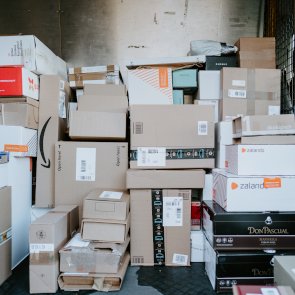How to Avoid Customs Delays: A Few Things to Consider When Shipping Internationally
 Customs delays are one of the most common factors that affect international shipping time: your package won’t enter the destination country and get delivered to the recipient until it’s cleared by customs. Sometimes these delays are caused by things that are outside of your control, like customs being busy because of holidays, but there are steps you can take to minimize the chance of customs delays.
Customs delays are one of the most common factors that affect international shipping time: your package won’t enter the destination country and get delivered to the recipient until it’s cleared by customs. Sometimes these delays are caused by things that are outside of your control, like customs being busy because of holidays, but there are steps you can take to minimize the chance of customs delays.
To understand what you can do to avoid customs delays, you need to know what happens to your package once it arrives at customs. First, a customs officer examines its paperwork: the shipping label, the customs declaration/commercial invoice, and other documents that may be required (certificate of origin, dangerous goods shipper’s declaration, etc.). If the paperwork is in order, customs assesses applicable duties and taxes based on the value of the package and requests payment. Once all duties are paid, the shipment clears customs.
Unless customs is busy during a peak season, customs delays rarely happen, and when they do, its usually because of incomplete or faulty paperwork (according to statistics provided by DHL, incorrect or missing documentation is the cause of 80% of customs delays). So, the best way to avoid customs delays and ensure that your package arrives as soon as possible is to make sure your shipping paperwork is in order.
The shipping label and the customs declaration/commercial invoice are the most important documents required by customs. When you’re filling our the shipping label, it is crucial to ensure that there are no errors in the recipient’s contact information because customs needs to be able to contact them if any duties and taxes are applicable to the package, since customs fees are normally paid by the recipient. If you take the DDP (Delivered Duty Paid) route, where duties and taxes are paid by the sender, make sure that your contact information is correct, too.
Another document that customs take a close look at is the customs declaration or commercial invoice. Both documents provide a list of goods inside the package, including their names, quantity, and price. The main difference is that you supply a commercial invoice when you are the seller of the goods that are being shipped, and a customs declaration (also known as a proforma invoice) when you send stuff to someone as a private individual.
An international shipping label also serves as a customs declaration, so when you’re creating a shipping label online, you need to provide all information that should be in the declaration. To prevent customs delays, provide accurate goods description and declare the correct value of the goods because customs may suspect fraud if the value seems unrealistic (plus it is important for insurance purposes).
Some shipments require additional paperwork. For example, some goods need a certificate of origin (CO) or a dangerous goods shipper’s declaration. It’s your responsibility as the sender to figure out which documents your package needs and provide them. Remember that different countries have different customs rules and practices, so you should look up the specific rules and requirements of the destination country (some countries have very unexpected import restrictions).
Taking care of the paperwork will help to avoid approximately 80% of shipping delays, but there are a few more steps you can take just to be on the safe side:
- Double check everything before printing the shipping label/customs declaration.
- Make sure the shipping label is attached securely to the package and protected from the elements; put a backup label inside the package just in case.
- If customs sends you a request for more information, respond promptly.
- Warn the recipient that customs may reach out to them with a request to pay duties and taxes.
- Remember about peak shipping seasons; packages tend to get delayed at customs around Christmas, which is something you should factor in when mailing packages in December.